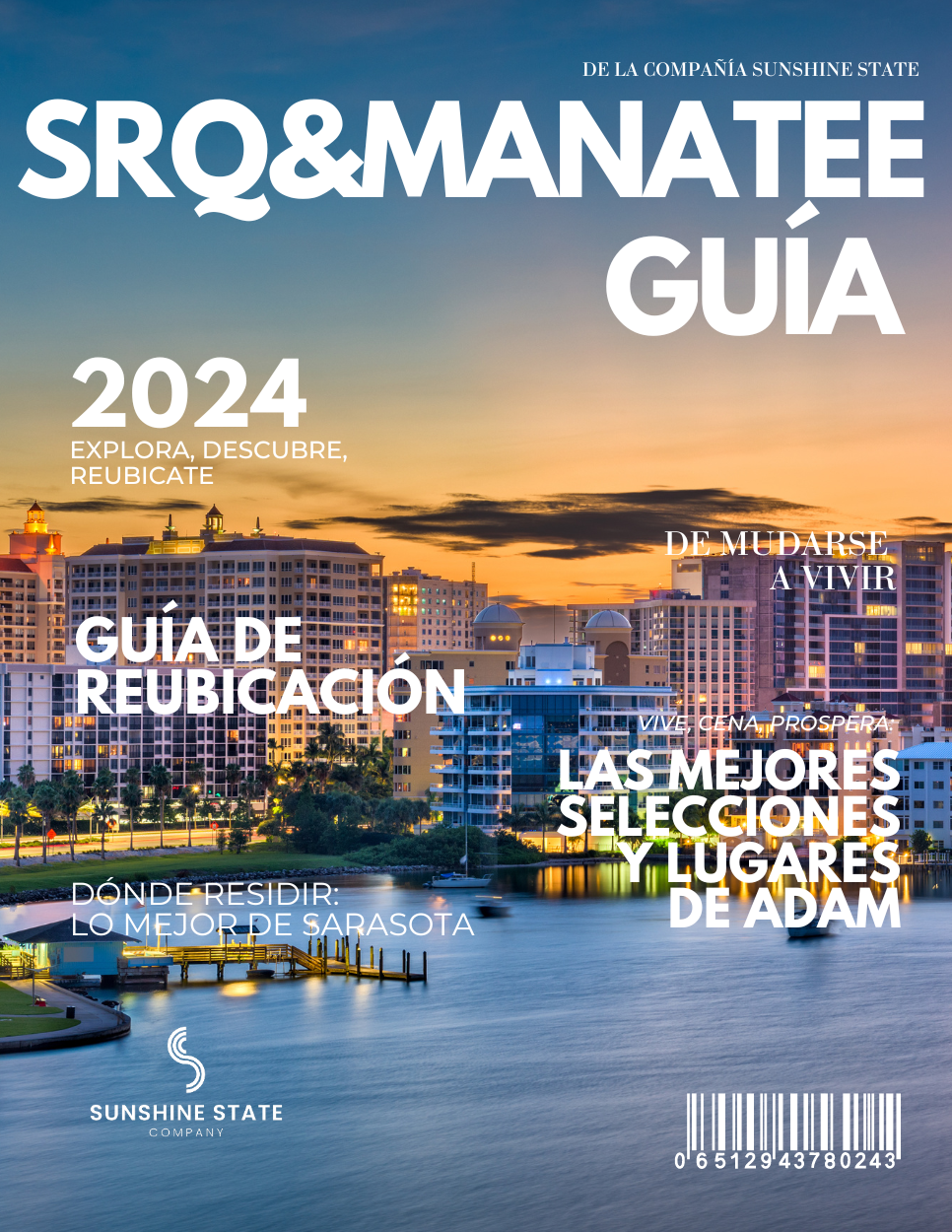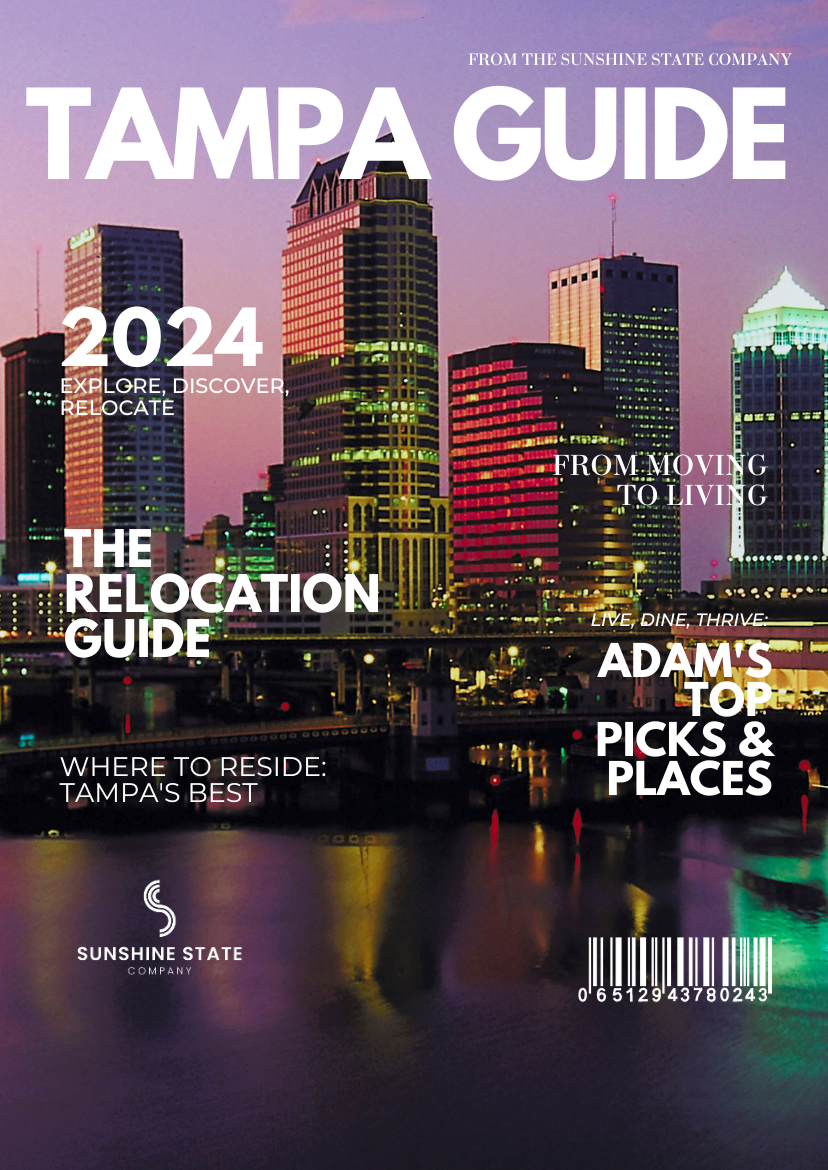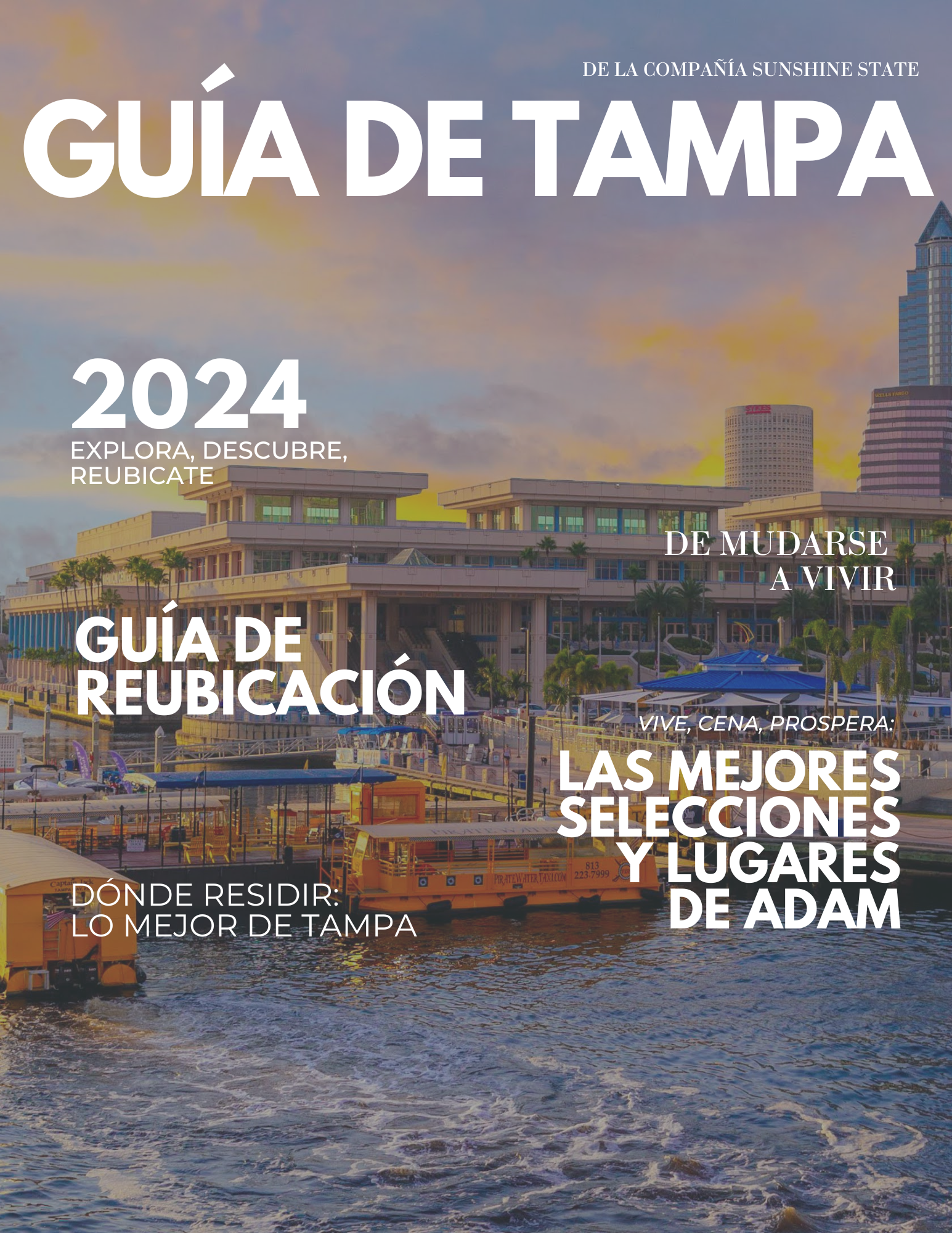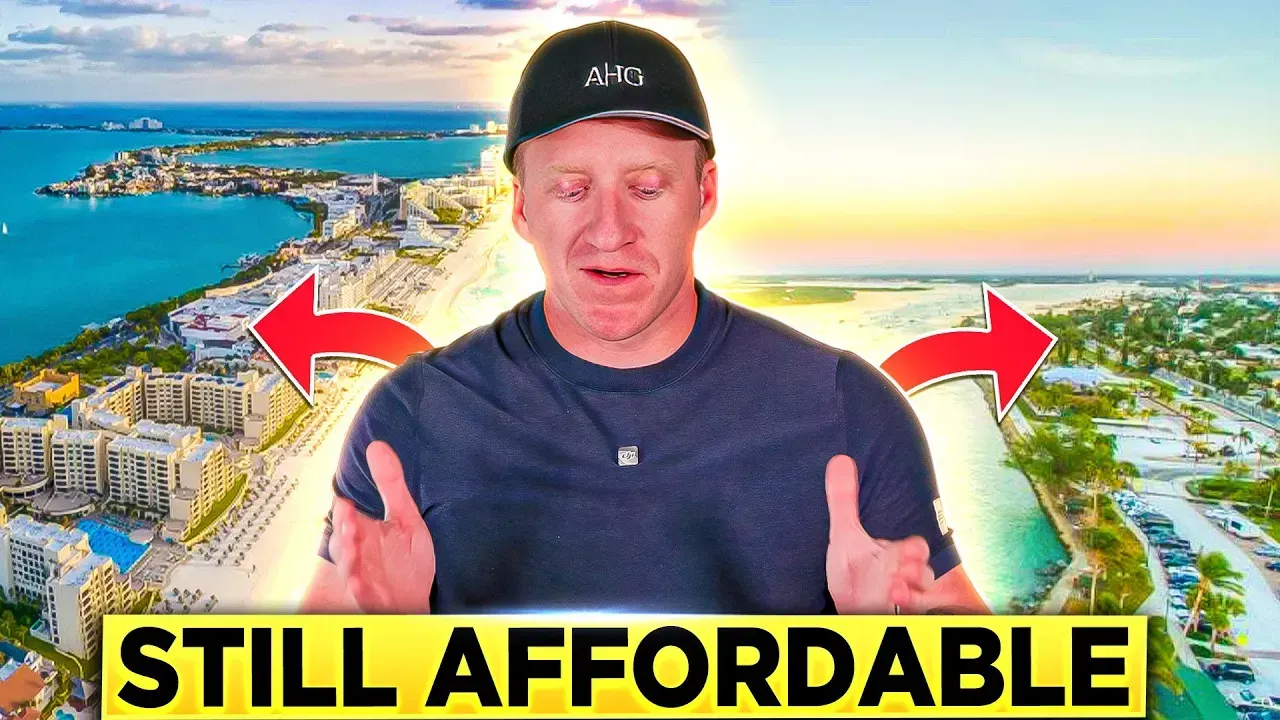Today on the back of all the US housing market craziness that we've all been dealing with, I wanted to talk about five cities in particular that maybe taken a little bit more of a harsh hit recently when it comes to all the exodus. And then five possible benefactor cities that benefited when it came to net migration and overall home values. And I have some thought exercises and some extra discussion points and correlations that I'm going to throw in there as well. So I hope you enjoy today's take and let's hop in.
- Preface
- The 5 Cities
- The Discussion
- #1 Bloated Markets Get A Trim
- #2 Buyer's Ranking Space
- #3 Job Layoffs
- The Biggest Rise In Value
- #1 Big City Needs
- #2 Home Value
- #3 "Scary" Volatility
Preface
So for this particular video, I don't think we need some big long drawn out preface in order to lay the foundation for getting into the list, especially if you've been following my channel for any given period of time over the last year or so. If you've been participating in this home market at all, buyer, seller, even renter, or are remotely familiar with tracking the news just interest level wise, you see the interests rate spiking. You see affordability becoming nervous, you've seen a big rise in home prices and then a relatively good check. Q1, you've seen home builders trying to circumvent the lack of demand through incentives and discounting prices, and you see all this kind of movement and people trying to forecast and guess what's going to happen. So all of that movement causes obvious shifts in particular cities and some greater than others, up and down. So with that being said, let's just hop right in and let's talk about the biggest cities that fell in the last given period of time when it comes to home values.
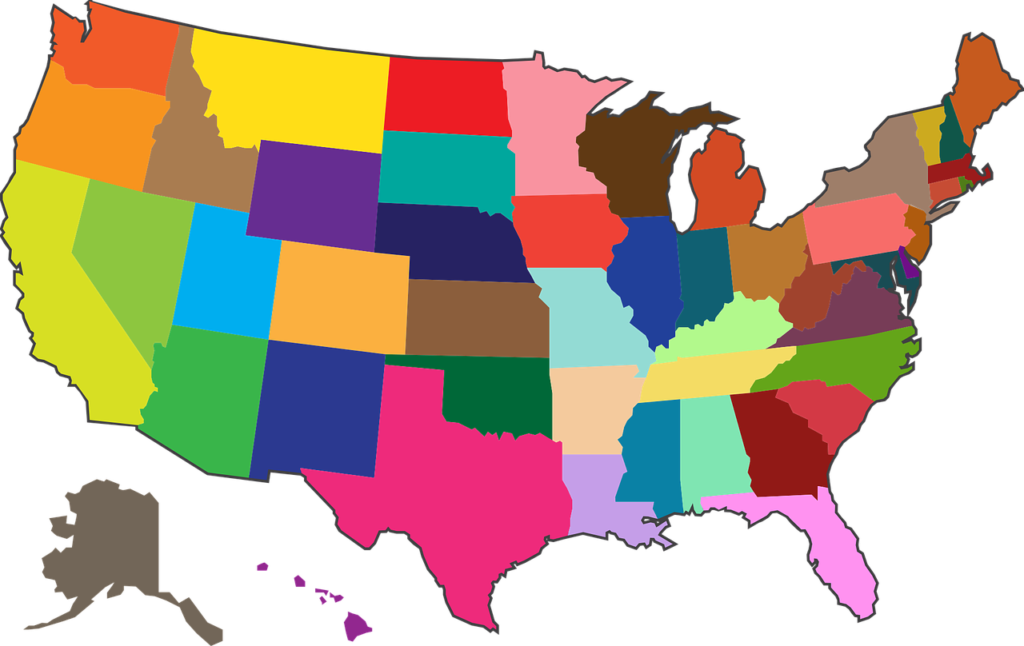
The 5 Cities
Okay, so maybe some surprises here, maybe not. I don't know if you had to pick a list of five, if you would guess that they are clustered in one part of the country or they're spread about. I think I could go either way.
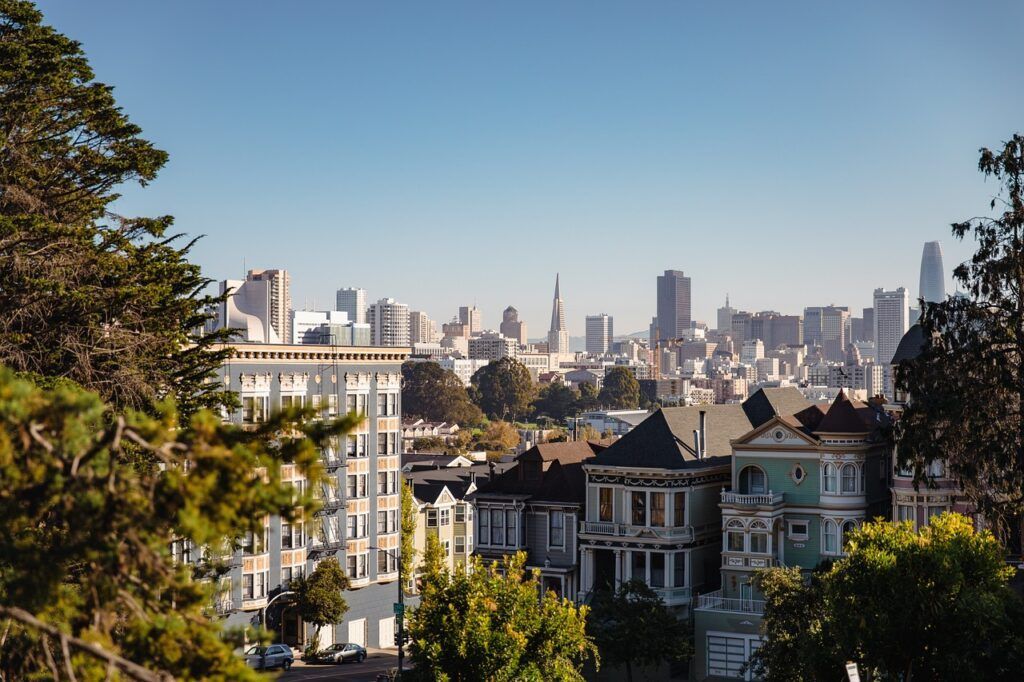
San Francisco, Oakland, and San Jose , California
But right off the bat, the West Coast and California in particular took the biggest hit by far on this whole topic. So three of the five on the list are all in California. San Francisco is number one, Oakland, California is number two, and San Jose was number three. What's interesting there is, one that the top three of the five on the list by far had way bigger drops than number four and number five. They were statistically significant, number four and number five, but not like one, two, and three. And also San Francisco, Oakland, and San Jose are relatively in a small density, like an hour square radius around each other. When it comes to California being such a large state, this wasn't spread even. It was all clustered in this one area, which I think there might be some correlations in my discussion points here next.
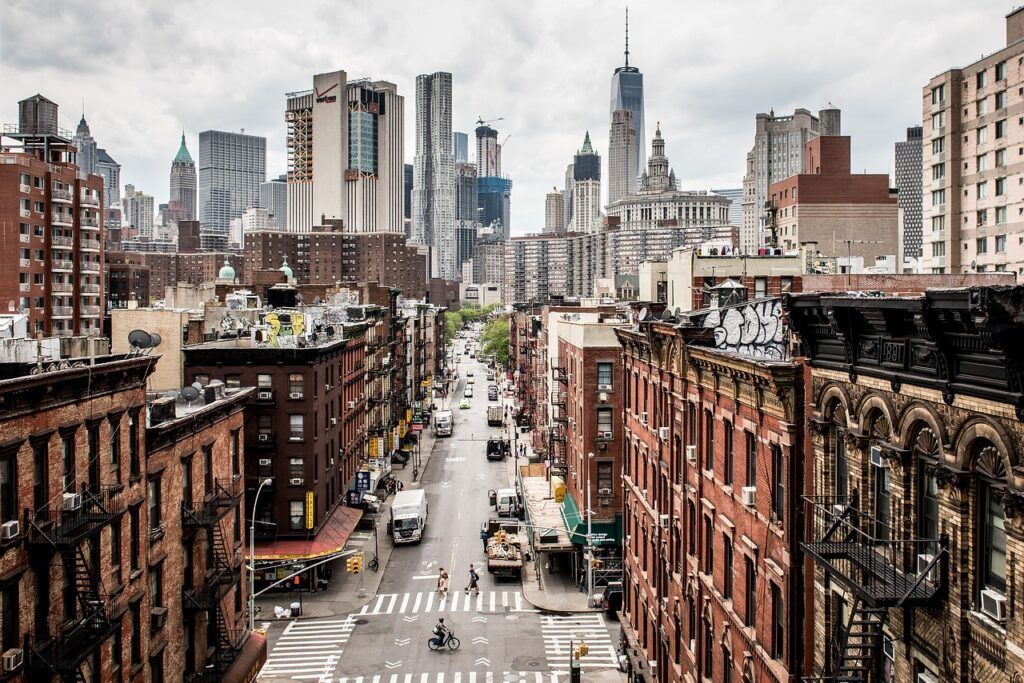
New York, New York
Number four on the list, we are going to hop to probably not a surprise, New York, New York was number four, which I think a lot of people maybe would guess that the northeast might have a bigger hit than the West Coast, but it was just one on the top five.

Seattle, Washington
Then we hop back to the West Coast again for number five, and we hit Seattle, Washington. I've been seeing a lot of the Washington net migration here in the Southwest Florida area lately, bigger than I have in the past. So that doesn't surprise me either. But you could say that... I would've thought maybe Illinois would've been in there. I mean, Canada. Obviously it's US based, so Canada would probably be in there if you broaden the term here. Washington DC, we're also seeing a ton. New Jersey we might be seeing more than New York. So it's interesting overall, but California and the West Coast in general, seeing a lot of fragility there.
The Discussion
I want to talk about three important topics that I think could be correlators when it comes to major reasons why one this happened, but also why it might be here more to stay than to come back. So I want to do that now.

#1 Bloated Markets Get A Trim
Okay, discussion point number one when it comes to the falling cities, I'm calling bloated markets get a trim. And what I mean by that is simply higher priced, inflated markets have more room to drop. It's easy to get a percentage difference in value versus value in a market that was maybe inflated. I think this is on the back... And if you take the five cities on this list, this is on the back too of a big topic when I think it comes to fragile perceived value of cities that get popular. And these particular cities that revolve around industrial tech kind of booms potentially, or particular companies that really, really hold the balance of that city's wealth distribution in their hands, it becomes very fickle if things get weird. So I think California has some of that old school real estate stuff potentially. You have the coast as a value, you have the city as the value, and you have a lot of reasons where people can benefit from a city in multiple facets that aren't just one downtown that's inland.
But you also have a very expensive place to exist, a fragile political ecosystem, and you have tech supporting such a heavy element of that city in this high stakes, high income paid game, where that same exact amount of money and everything doesn't translate when it comes to what you get paid at work and what you pay for home and what you pay to exist in that city if you go a lot of other places in the country. So if someone loses that opportunity they had and they were living this lifestyle that only worked in these particular metros in the country, then it falls off like an absolute ton of bricks and I think people would get simply exhausted by it over time. So I think just the simple inflation of the values in those cities would put this on a list as a pretty big outlier.

#2 Buyers Ranking Space
Okay, point number two, not all that separate than point number one, is that simply buyers are ranking space and or affordability over the proximity to their offices. These cities are places where being close to the office in commute time really, really matters, right? Because the way they're shaped and how busy the traffic ecosystem is and the commutability of that particular city, 5, 7, 8 miles can be a horrendous quality of life balance. Well, people on the back of having the chance to work from home, seeing that things they valued as important weren't as important when health became a concern, and all these things that happen. I think that breathing room alone allowed people to say, what do we want to do now? And especially if you have a growing family and you're just tired of all the minutia, then the easiest thing to do is say, if I don't have to overpay for a smaller space to be close to where I work, so that's not an issue in trying to get there and get home, then I can simply move to the suburbs around those cities.
So potentially the biggest fall in these values, they could have stayed in California, a lot of folks. And this happened in downtown Chicago a lot, and they went to the Illinois suburbs because now they could get much more house, get master-planned communities, get amenities, et cetera. And that's the same thing that most likely happened in a lot of parts of California. Because we just assume everyone goes to Florida, which isn't necessarily feasible for a lot of people in the country. They could have went to Arizona, Nevada, and you see a lot of that. But just simply leaving San Francisco and going to a suburb that's not in the same city is very possible, which then made the increase in values happen in the suburbs, and a lot of the suburban people then exited and made a retirement exit. Because typically suburbs got value increases that maybe should have never naturally happened, and those people saw a once in a lifetime windfall and exited.
So I'm seeing a lot of that, but also just completely leaving the metro and saying, I'm going to recreate this entire thing and then hope that I maintain this job and they don't make us come back to the office, or I'm willing to take the risk, that I'd rather take that risk basically. So I think quality of life is becoming more and more abundant in these major cities where just simply, I'm not sure... I mean it depends who you ask, right? But I'm not sure it's that healthy to exist around that many people jammed in a place. I think it just simply wears people down. Being from Southwest Florida, even visiting these cities, it's just kind of wild how much people go through to do normal things, like the subways and the commuter kind of environments of these cities. I guess it's all what you're used to, but I see that being a big relief when people get here, that they're willing to deal with the other differences in their life that they lost potentially for that more balanced existence.

#3 Job Layoffs
The third point when it comes to the falling cities is simply about the job layoffs and then potentially even with that, the drop in investment value when it comes to stocks or what people thought they had, what they thought they were going to be able to utilize. So you've all seen on like, if you're on LinkedIn at all, just loads and loads of all these layoffs. A lot of P and L posturing when it comes to just cleaning up books or cleaning up maybe inflated work environments or whatever it may be in these particular companies, that a lot of this stuff is centered in these big cities. And some people you've seen have six-month stints at three places and being continued to lay off. In support roles and business development roles and all these various different...
Especially when it comes to the tech companies, where that's caused people physically needing to relocate because they need to maybe move to the city for that potential job. And they lived that kind of high stakes game of income and when they lost that job, couldn't find another one. They could no longer afford to exist the same way they did and maybe moved back to where they have some familiar support system, or simply moved to a place that maybe is more affordable or had to move for a job and so had to exit the cities. And I think that that can't go without being said, that that's been a big push of people no longer being able to maintain the same living environment in the city that they did.

The Biggest Rises In Value
All right, now on to the highest rises in value. So what cities rose the highest? I have actually a little bit of variety here we're going to talk through. So let's get to the list.
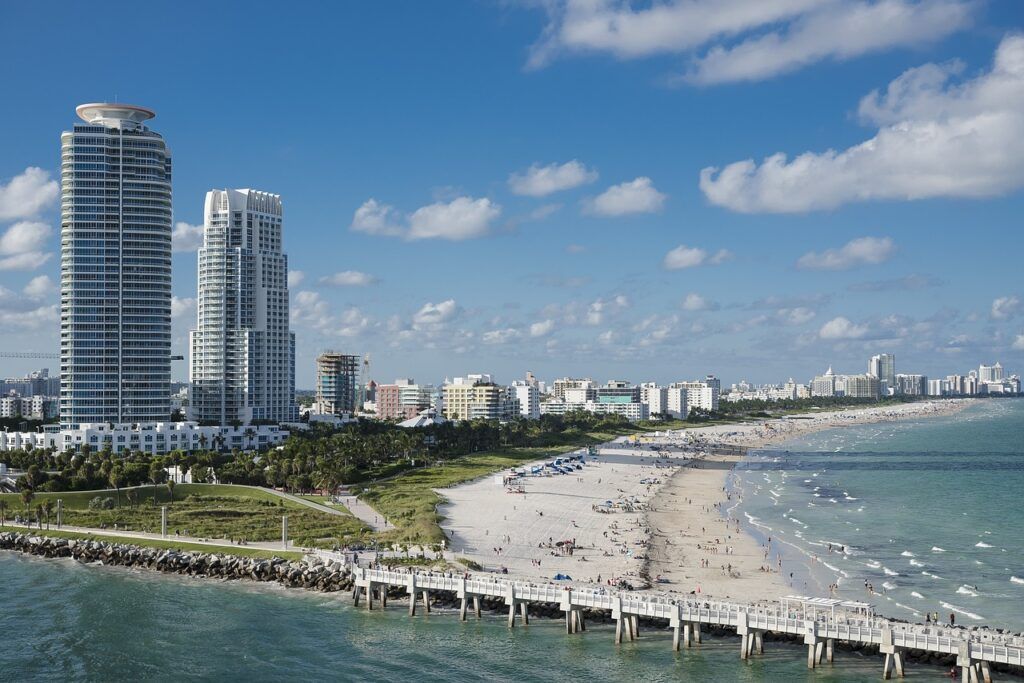
#1 Miami, Florida
Number one on the list was Miami, Florida. I'm not sure if that surprises you, you see a lot of negativity about the inflated values when it comes to Miami. Well, we're talking about home values here. So we're going to talk through that a little bit more on the discussion points of pricing versus value there. But that was number one.

#2 North Port & Sarasota, Florida
North Port and Sarasota, Florida. So that metro, Sarasota County in Southwest Florida, that's where I stand here today actually. It covers North Port, which is kind of a big city, Englewood, Venice, and Sarasota. That's the whole county. It's been very in vogue lately. I'm sure that's probably not new news.
#3 Lakeland, Florida
Lakeland, Florida was number three, which is interesting. I'm not sure I would've guessed that, but Lakeland is an interesting proximity. It sits between Tampa, Florida and Orlando, so it's kind of sneaky there. It's really affordable, and there's also several colleges there. And you're seeing a lot of people end up kind of stay in the middle there next to the big cities. But that was number three.
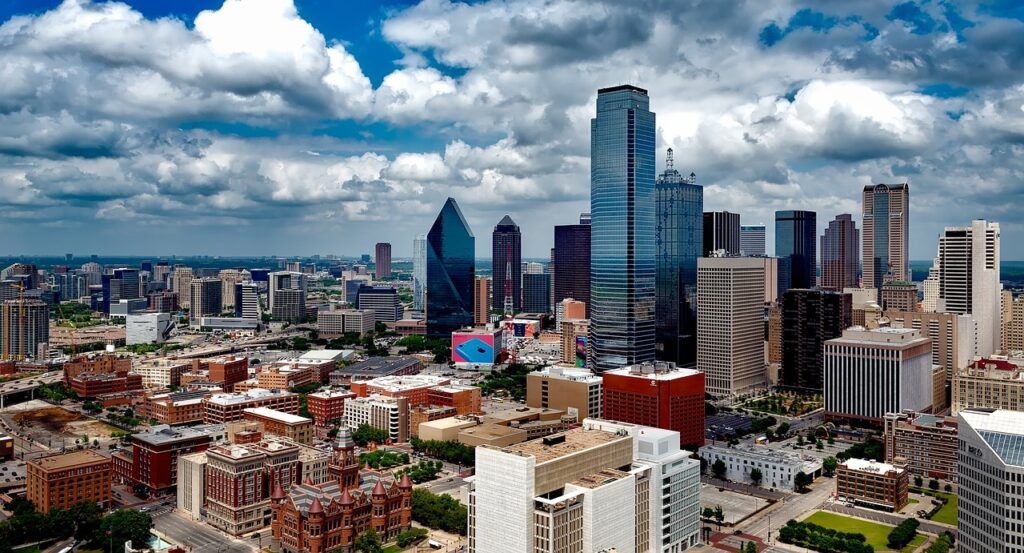
#4 Dallas-Fort Worth, Texas
Number four was Dallas-Fort Worth in Texas, North Texas. And number five was Raleigh-Durham in North Carolina. So we're going to talk about three points here that will cover a lot of the bases, but just some texture there.
So the Sarasota, Florida conversation, obviously I'm from here, so biased, I guess. But I've seen the Sarasota, Florida one come in the perfect happy medium. They want to go Southwest Florida on the Gulf. Tampa's too big, too much if you don't have to commute to work and you don't need all the industry. It's a big metro. In Naples, people typically will then center on Naples versus Sarasota, and I'm seeing most of them choose Sarasota. It's much more blended in value versus Naples really, really bougie part of South Naples, versus the North part of it. It's a bigger divide from Naples to Fort Myers to me versus the Sarasota Metro. So I'm seeing that's where Sarasota really rise.
Dallas-Fort Worth is interesting. I've actually been looking into that a ton, I actually just visited Plano about a week ago. But Dallas-Fort Worth's really interesting because I've always seen it as a little bit of a mirror of what Sarasota is to, in a weird way, what Southwest Florida is to Florida is like Dallas-Fort Worth to Texas. But a big thing I noticed right away there was, that's a huge, huge city. I've never lived in a city, never really been to a lot of cities that large when it comes to the whole metro. But the way the suburbs are there, because you're very far inland and the way the roadways were and all that, there was a million different suburbs. But I drove on a Tuesday morning in rush hour commute, and it took me 30 minutes to go 28 miles to the airport, something that would be wild to me versus living in Florida. So I thought it's interesting how they connect the suburb areas to the towns.
And then there's also a lot of big cities where you don't have to go all the way into Dallas, like Frisco and Plano and Prosper. These areas, you can kind of live your whole life there. And a lot of Florida doesn't have that. If you're in Sarasota, Lakewood Ranch, Venice, a lot of people are coming into downtown. Same with Tampa, you have downtown, South Tampa, all these areas in one cluster. And if you live on the outskirts, you're coming in. So the outskirts are meant to come in, where Texas is different. I mean the roads, I felt like, I don't know, it was just one visit, but I felt like they did it better there.
Then Raleigh-Durham, before we get into the discussion points here, the North Carolina area, I think, is number three in net migration when it comes to after Florida and Texas. But North Carolina, I feel like, is the one where... Florida and Texas are more similar to each other. And Texas is kind of weird when it comes to weather, but weather, taxes, et cetera, it's typically a preference between the two. Maybe Texas is overall a little bit more affordable. But North Carolina, I feel like, is the not coming all the way here, basically. So it gives you seasons, it gives you more of what... Like if you come all the way down from the Northeast or parts of California or parts of the West Coast, then Florida might be too much of a divide for you. And North Carolina is far more affordable. So I feel like North Carolina is the stop on the way here, especially if you went to Arizona and you're like, all right, I'm going to keep going, I don't want to go all the way to Florida. I feel like North Carolina satiates that, and you see Raleigh-Durham, you see Asheville and Charlotte, et cetera. So with all of that being said, let's hop in and talk about three points that correlate to these being rise in value.

#1 Big City Needs
Okay, talking point number one when it comes to the rising in values, let's talk about big city Florida opportunities. So I think a lot of us assume when you come from like a San Francisco or New York, in Seattle we're talking tech hub cities, we're talking the reason people exited, a lot has to do with economics and industry in general, that they're going to come to Florida and just live some tranquil existence. That's not necessarily the case because the reason they exited weren't to retire necessarily. There's a lot of that, but it's not all of it. And when you come to Florida, a lot of cities, because of the evolution of what Florida is, they're based on live first, work second. So there's not a ton of opportunity in particular cities because it's based on hospitality and leisure. So with that being said, you have four major players in the entire state really.
You have Jacksonville all the way in the north, almost in Georgia. You have the Orlando Metro that's east of Tampa. You have Tampa Bay's Metro, which is in North-Southwest Florida. And then you have Miami's metro. And over the last decade, Miami's probably been the winner of that conversation. And Miami being number one on the rising in values, you know, they refer to it as the mini Manhattan of the state. It's beautiful, but it offers a lot of economic variety. I think there's the most international banks that exist in Miami. You have the cruise and hospitality industry, you have healthcare. There's loads of different ways to live within the urban environment and the suburbs. And Fort Lauderdale bleeds in there, and it's very coastal and you have all that kind of stuff. And this list is about rising in home values, not necessarily do you agree that they should be in this place. So I think the abundance of demand.
And then the thing with Miami too, you have a load of international money being stored and invested in Miami, which might kind of throw any logic of value that you have in place out of whack because the people that are putting money in Miami, a lot of them, it doesn't matter. For them, it's a huge benefit. But for someone that's living and existing in Miami and saying, "Why did value go from here to here?" It's never going to make sense. So I think a lot of the Miami, I do think there's a lot of reasons that it is in vogue and that people like it. But I think a lot of the smoke screen of the value increase, I think logically in my mind, a Tampa Bay will overall win this conversation, which maybe is five years behind the Miami conversation. I think it offers maybe inherently more to the state when it comes to just apples for apples. But I think the big city needs are one reason that Miami is on the top of this list.

#2 Home Value
Discussion bullet number two is I think in 2023, we need to re-look at home values versus how expensive a city is versus total perspective of money. In my mind, you could talk about affordability of a city, but it's all perspective of this one costs this versus this one cost this. I think the real heartburn is what you paid versus what you should have paid in a city, that's going to be wildly different, versus what's the chance this value stays at that value in the future or rises. So you could say Sarasota, Florida's way too expensive. Yeah well, if you're comparing it against Ocala or something like that, or Miami's too expensive, but it's all versus what. But I think that the more important point is how fragile is that city to the state, whether it is in North Texas or it's in parts of North Carolina. This is my discussion against Tampa Bay versus Miami potentially, or Sarasota versus Naples.
What is the better mousetrap if you had to pick one? What is the chance that this city, regardless of cost, stays popular? It's versus the alternatives of what people could do. So if you could pick Sarasota or Naples and everyone had to pick one, what would be the preference over time? The way the city's shaped, the suburb opportunity. Do you need work opportunity? Is Miami too far south and too expensive for what it is? Is Jacksonville too far north? It's very large, too far north for what it is. So if people had to pick one, would they pick Tampa? Because Orlando's inland and Jacksonville's too... Are they too much on fringes, if you had to pick one? I'm really hot on that discussion of economics type of old school real estate stability. If you had to pick one, then what's going to happen is there's enough people that are going to migrate south over time, regardless of if the people agree with the value or not.
When the market calms down, they will go back into Florida, they will go back into Texas, and all the things where people pushed into areas that were unconventional because of frenzy, those will calm down. But the Siesta Key won't get less popular in the world over time because there's just enough people. Only so many people could live on the island or in this city, that there's some old school things in my mind that really will always weigh the economics of that investment being pretty blended. I mean, you could have microcosms of, your house went from 3 to 500, you bought it 500 and the person sold it 3, and now it's worth 450 and you bought it 5. But what's the chance over a long period of time as a long term investment that it's worth 7? What is the chance? So I think looking at that, and then also perspective of money.
If you come from New York or California or something like this, these cities are always going to be cheaper. So the problem with being local versus folks that are migrating in is that they're going to weigh the perspective of what their total cost of ownership was elsewhere versus you're going to weigh the difference in only what you know versus what it was. Like you're pissed that in 2020 that house was cheaper than it is now and someone else got a windfall, but the people coming in against you are like, "I'm paying $400,000 more for the same house right now. My taxes are worse. Interest rate 2%, doesn't matter to me because just by simply not living in that other state, I'm going to save loads of money." So I think all that plays into the conversation there. Hopefully I articulated that well enough. But I would consider long-term value as something to really, really hone in on more than small, in the landscape of society's long-term years, small changes in price in seven, eight percentage points. I'd weigh the long term value over that much more.

#3 "Scary" Volatility
Okay, and the last discussion point when it comes to the rise side of things before I digress this video. What I'm seeing is buyers aren't really sweating the scary environmental volatility when it comes to climate that you hear about abundantly over the move in totality. Flooding and hurricanes and insurance and all these kind of things that people are like... The doom and gloom parts, mainly Florida really. Buyers are saying that the benefits outweigh the concerns. Then something that really, I think, is skipped over a lot is that most really attractive cities in the United States have environmental volatility. The coastal parts of California, you have earthquakes and you have fires. And the Eastern part of the United States, the Northeastern part of the United States gets maybe more hurricane damage than a lot of parts of Florida, especially Southwest Florida. So most really, really attractive places in the United States have environmental volatility already. So all they're doing is trading one.
And then in most cases, other than weird things, knock on wood somewhere. Unless you're trying to tackle an alligator in Florida, it's not that common to get attacked by an alligator. So you hear just really extreme examples of it. I do hear the climate stuff a lot and I hear Florida's going to float off into the water and all this kind of stuff, where I'm seeing buyers say that's pretty far down on their list, even post the hurricane in the Fort Myers area, which was awful. People bounce back really, really quick. Sarasota's been a benefactor of that. But even in the north, Fort Meyers, Alva, Punta Gorda, Babcock Ranch area, the Naples area. They bounce back because they're just saying, what else would and could we do? And staying where we're at isn't the solution. We still want to be in Florida and we don't want to be just in Florida, we want to be in these particular areas. And it comes down to like, maybe Sarasota wins, Naples loses if there's a recent hurricane. But other than that, I think people have a short memory and the climate has not been a huge, huge factor in my mind. I think it's always inherent. But it's always inherent of beautiful, tropical areas is the problem, right? So there's a risk reward that comes with that.
Categories
Free Relocation Guides
The YouTube Channel
Watch The Latest With Adam Hancock
Each week I'll give my view on everything from the best neighborhoods around Southwest Florida and new construction communities.

One of the most unique things about our brokerage is how we view the real estate experience!
When you work with The Sunshine State Co team you get Adam, the broker, & your own dedicated agent. This formula provides clients with a full-time market researcher (aka - the best info possible), read more...
LIke Free stuff?
Florida guides, tools & more!
The absolute SMARTEST way to relocate and/or invest in the entire state of Florida. We create an abundance of original, value-based and economics-first resources to equip our clients for the real estate market ahead. Smarter buyers are more savvy buyers!
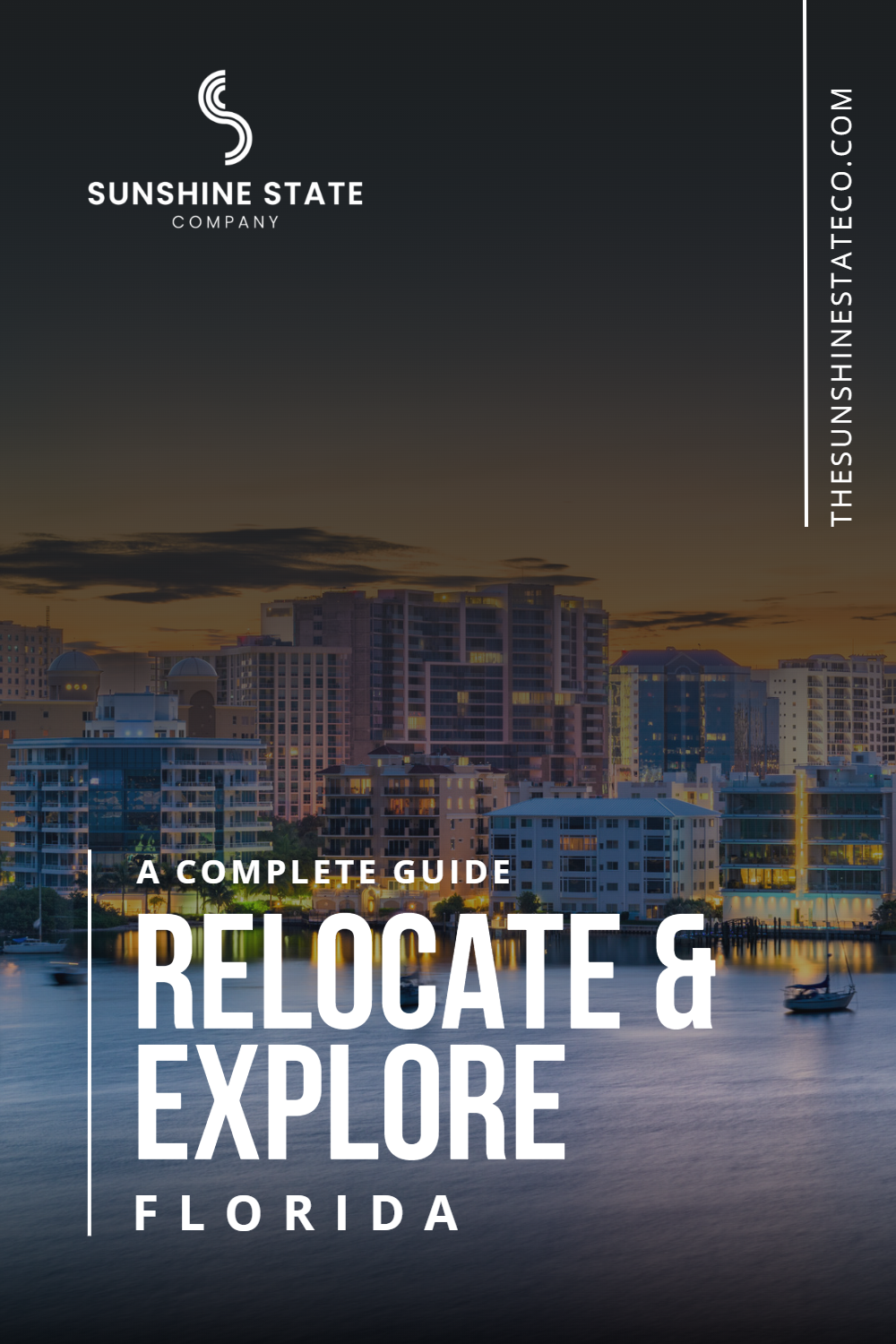
Sunshine State Company
Ready to take the next step?
Let's schedule a meting! During this initial consultation, we'll learn more about your situation and what you're seeking in a home. We'll provide advice and address any concerns you may have, in order to determine the best approach to achieving your goals. By the end of our conversation, we'll have a solid plan of action and next steps for moving forward.



